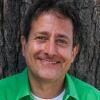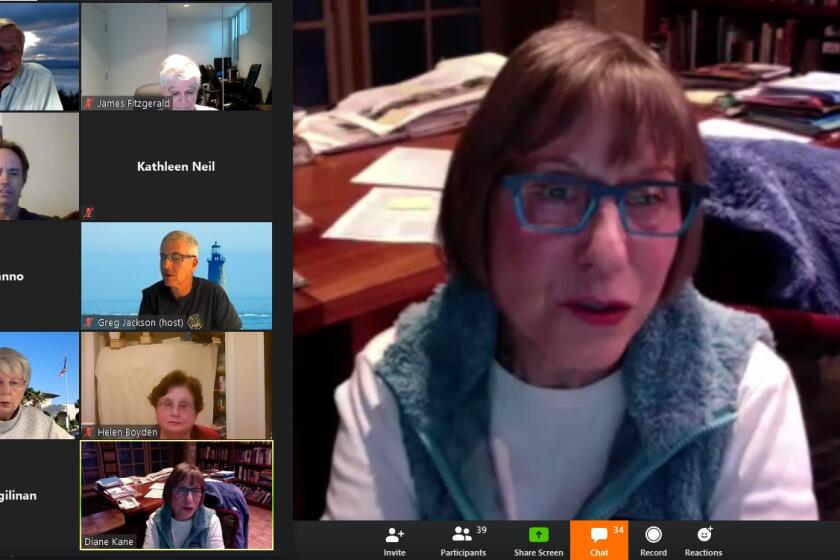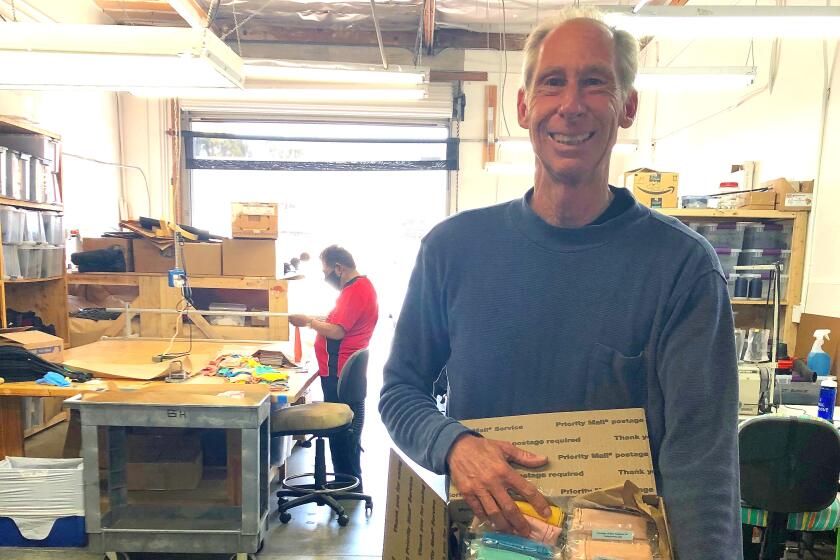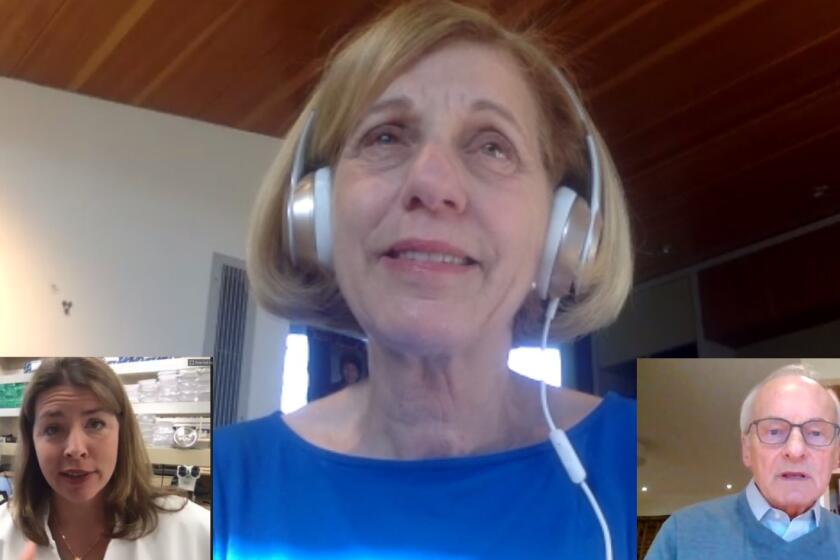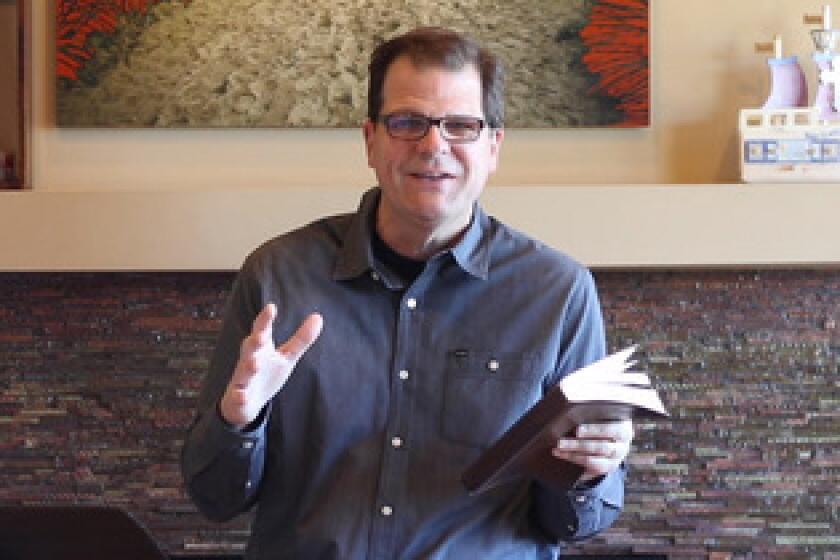How SIO’s Dr. Ram talks science to religious leaders
Through the windows of his corner office at Scripps Institution of Oceanography — the office he inherited from Sally Ride after she moved back to the UC San Diego physics department in the early 2000s — Dr. Veerabhadran Ramanathan has yet to see any of the disastrous effects of global warming predicted by his pioneering research. “But that’s the thing about climate change,” he tells the Light, “you don’t see it but you feel it.”
Ram (as friends and colleagues call him) is best known for proving, in 1975, that chlorofluorocarbons (CFCs) not only contribute as much to Earth’s increasing greenhouse effect as carbon dioxide, but that one ton of them has the same warming effect as 10,000 tons of carbon dioxide.
For the past five years, however, he’s made translating climate science to religious leaders his primary work. Ram, 72, has already met with the Dalai Lama and — as the framed photo documents behind him — Pope Francis. (Their 2015 meeting at the Vatican informed the pope’s encyclical on the environment.)
To his own surprise, Ram — who describes himself as “a non-practicing Hindu, but not an atheist” — says he’s so far received zero pushback from any of the leaders of either religion or science for attempting to bridge the yawning chasms between their worldviews.
On Dec. 7, Ram will present at UCSD, “A View From the Vatican: Climate Change, Air Pollution and Health as Our Responsibility,” a talk exploring the health impacts of climate change, summarizing his Vatican discussions, and exploring what the next steps toward mitigating this global crisis need to be.
Q: Do you remember exactly what you were thinking when you realized that you were the only person on Earth who knew exactly how dangerous the CFCs that cooled every refrigerator at that time were to the Earth?
A: At that time, I was too young to know the Earth was in trouble. No one had known. So I would say, sadly, I was really excited about the discovery — that I found something that everyone had missed. I think my realization that this problem was going to have a huge impact — that took over 10 years to get my head wrapped around.
Q: Why did you shift your main focus from doing science to communicating it?
A: I was expecting presidents and prime ministers to read all these published papers and take action. But, when I turned 60, I realized that nobody cares about my papers. It’s not enough just to point out that the Earth is getting damaged. So I started working on solutions to the problem.
Climate change has become a political issue in America, so scientists like me need a forum to talk about it in an apolitical manner, right? So, because I was elected to the Pontifical Academy of Sciences by Pope John Paul II, I thought, wow, I can talk to religious leaders about climate change. The church could be an agent of change, because there’s not a Republican church and a Democratic church.
Q: Do you see yourself as a negotiator between science and religion?
A: I’m not naïve or stupid. There are a lot of contradictions. But in the case of environment, science and religion want the same thing. Scientists like me want to protect nature for future generations. Religion wants to protect creation. I must tell you, I started on this mission five years ago, and I haven’t experienced a single pushback from either religious people, or the scientists in this hall. I’m sitting with the most rigorous scientists. Every time I go to the bathroom here, I think someone’s going to come and hit me on the head for doing this. But so far, no. Even scientists appreciate it.
Q: What was meeting with Pope Francis like?
A: There was this bishop with us who told me I had two minutes. And I said, ‘How do you expect me to summarize everything in two minutes?’ And he said, ‘Just tell the Holy Father what you told us.’ And so I told him that climate change has become a serious problem, and what worries me is the injustice, that 50 to 60 percent of the pollution comes from the wealthiest one billion people, and the worst consequences of climate change are going to be experienced first by the poorest three billion, who have nothing to do with this.
The Pope immediately asked, in Spanish, what he can do about it. I told him, ‘You are the moral leader of the world, just include one sentence about climate change, ask people to be good stewards of the planet.’ And he smiled. And, of course, his encyclical on the environment was all about that.
It’s not that Pope Francis didn’t know about the problem of climate change. I don’t take any credit for educating him about that. But I think meeting with someone like me made him realize that this problem is a lot more urgent. Very few get the urgency. The disaster we’re talking about is not 100 years from now. It’s not even 50 years from now. It’s not even 30. It’s about 10-to-15 years from now. And when I see people like you walking into my office, I’m thinking, ‘Does he know that cliff is just right there?’ I don’t think anyone does.
Q: Is there a secret to talking science to religious people?
A: I have given talks in at least 15 churches all the way from Wisconsin to here, and the one I remember the most is an evangelical church here last year. There were about 150 evangelicals. Honestly, I had some tough questions from them, but they were all reasonable questions, no pushback. I told them about the effects of global warming on the poor, and they immediately got it. I found that angle works — I don’t think in all religions, but in Christianity, it does.
Q: So you’ve gotten no flak from any Christians for not being able to understand their point of view because of your background?
A: No one, which is remarkable. This doesn’t rely on understanding religion. This is just taking common aspects of science and religion. And I appreciate how accepting Christians are just on scientific merit. You are making my story unbelievable. Nobody’s going to believe you.
Q: Which leader has made you the most nervous to meet?
A: You see, I have a mission when I meet these leaders — to convey the urgency — so that all my nervousness disappears. But when Pope John Paul II shook my hand, I felt something — that I’m in the presence of not an ordinary person.
Q: What do you consider your greatest success story?
A: How can you call anything a success story when America has pulled out of the Paris climate agreement? If you asked me to summarize, my mission is so far a total failure.
Q: Do you think if you had two minutes alone with our president, you could change his mind?
A: I don’t know about changing his mind. I certainly feel I would be able to convey to him what’s going on.
IF YOU GO: “A View From the Vatican: Climate Change, Air Pollution and Health as Our Responsibility” will be presented 6-8 p.m. Thursday, Dec. 7 at UC San Diego, Medical Education Telemedicine Building, Lower Auditorium, 9500 Gilman Drive. The event is free but a reservation is required at surveymonkey.com/r/ViewfromVatican
Get the La Jolla Light weekly in your inbox
News, features and sports about La Jolla, every Thursday for free
You may occasionally receive promotional content from the La Jolla Light.
